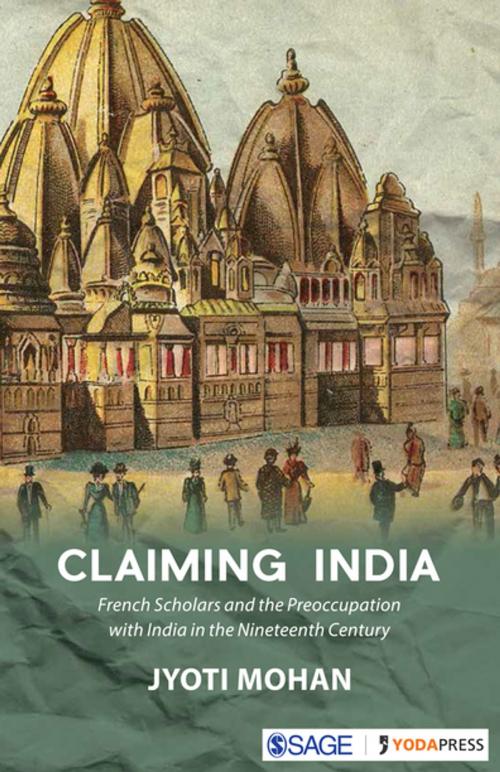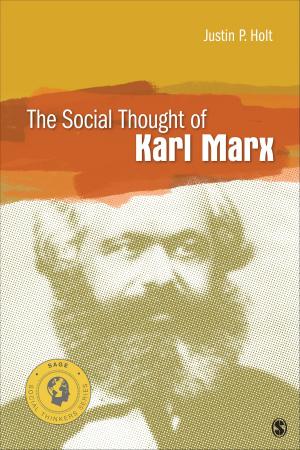Claiming India
French Scholars and the Preoccupation with India in the Nineteenth Century
Nonfiction, Social & Cultural Studies, Social Science, Cultural Studies, Ethnic Studies, History| Author: | Jyoti Mohan | ISBN: | 9789352804672 |
| Publisher: | SAGE Publications | Publication: | November 27, 2017 |
| Imprint: | Sage Publications Pvt. Ltd | Language: | English |
| Author: | Jyoti Mohan |
| ISBN: | 9789352804672 |
| Publisher: | SAGE Publications |
| Publication: | November 27, 2017 |
| Imprint: | Sage Publications Pvt. Ltd |
| Language: | English |
Most of us grew up with the knowledge that India had been a British colony—the jewel in the crown of the Raj. Even those with slightly deeper knowledge who knew that France had once been a contender for the Indian empire consider it a romantic interlude between the Mughals and their self-proclaimed Anglo-successors. Yet our ideas about India, fundamentally wrought from the colonial recasting of knowledge in strictly ‘Western’ categories—religion, history, politics, economy, mythology, and even the modern self-conception of race (Aryan v/s Dravidian)—were drawn from the studies of French Indologists. So France, a failed temporal conqueror, had actually conquered ‘India’—the idea. This book traces the process by which France ‘claimed India’ by defining India through caste, history, race and religion. The obvious question is, of course, why? Why did France invest all this energy, time, and money into defining an area she no longer controlled politically? To challenge the British? To demonstrate her own commitment to the ‘civilizing mission’? This book demonstrates how France’s fascination with India stemmed from all of these motives, as well as being a key component of her own national self-definition in the nineteenth century.
Most of us grew up with the knowledge that India had been a British colony—the jewel in the crown of the Raj. Even those with slightly deeper knowledge who knew that France had once been a contender for the Indian empire consider it a romantic interlude between the Mughals and their self-proclaimed Anglo-successors. Yet our ideas about India, fundamentally wrought from the colonial recasting of knowledge in strictly ‘Western’ categories—religion, history, politics, economy, mythology, and even the modern self-conception of race (Aryan v/s Dravidian)—were drawn from the studies of French Indologists. So France, a failed temporal conqueror, had actually conquered ‘India’—the idea. This book traces the process by which France ‘claimed India’ by defining India through caste, history, race and religion. The obvious question is, of course, why? Why did France invest all this energy, time, and money into defining an area she no longer controlled politically? To challenge the British? To demonstrate her own commitment to the ‘civilizing mission’? This book demonstrates how France’s fascination with India stemmed from all of these motives, as well as being a key component of her own national self-definition in the nineteenth century.















